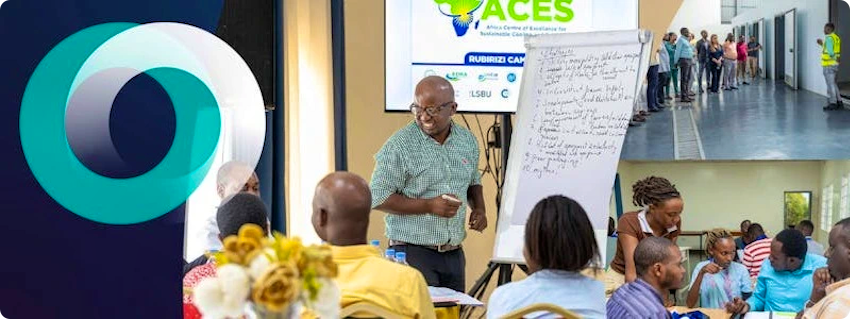Breaking biases and barriers: Diverse professionals unite at the ACES for ‘GESI Sensitisation and Integration Workshop’

Asha Singh, Researcher University of Birmingham
A dynamic and diverse group of 16 professionals spanning a range of backgrounds, ages and geographic origins have convened at the ACES campus for a week-long intensive workshop on Gender Equality and Social Inclusion (GESI) - within a cooling and cold-chain context. Food scientists, innovation facilitators, agriculture and civil engineers, procurement specialists, biomedical scientists, renewable energy practitioners, development workers, and HVAC technicians were brought together and united by common goals: to challenge their understanding of what GESI is; and to develop practical skills to meaningfully integrate GESI principles into their work, and ‘do GESI right’.
Over five immersive days, participants have been exploring how GESI can be embedded in the cooling and cold-chain sectors, with hands-on guidance from expert facilitators experienced in both agricultural- and health-related systems. The workshop covers key tools - such as preliminary community needs assessments and the use of GESI-sensitive business canvas models - to transform innovative ideas into impactful, inclusive, and economically viable business plans.
Two days into the workshop, participants were understanding the complexities that come with GESI implementation, but also, how it offers multiple entry points within a project or business cycle. By tackling one aspect at a time, they can take manageable steps to apply GESI and build evidence that it is a business imperative — and not just a moral one.
More than just learning theory, attendees gained the mindset and methods needed to become GESI champions, equipped to lead and support change in their organisations, projects, and communities, where GESI-sensitive monitoring, evaluation and learning can take place.
At the ACES campus, we are working toward a clear goal: for every participant to leave this intensive five-day workshop with GESI embedded as a core value, and with a strategic approach - rather than just an add-on to their processes. We want their ‘’GESI radar’’ switched on, ready to recognise inequalities within the cooling and cold-chain sectors, and equipped to design inclusive, equitable solutions that respond to those gaps.
As the course curator for this GESI course, I feel truly honoured to have worked alongside these 16 individuals - who span a variety of ages, professional backgrounds, and geographic origins – each eager to learn and share their unique experiences and perspectives with us.
We also hosted a one-day workshop for policymakers to engage in discussions around the challenges and opportunities of mainstreaming GESI in cooling and cold-chain sector policies. Ways to incorporate GESI-sensitive budgeting for cooling and cold-chain activities in Rwanda were also discussed in a lively and respectful manner.
